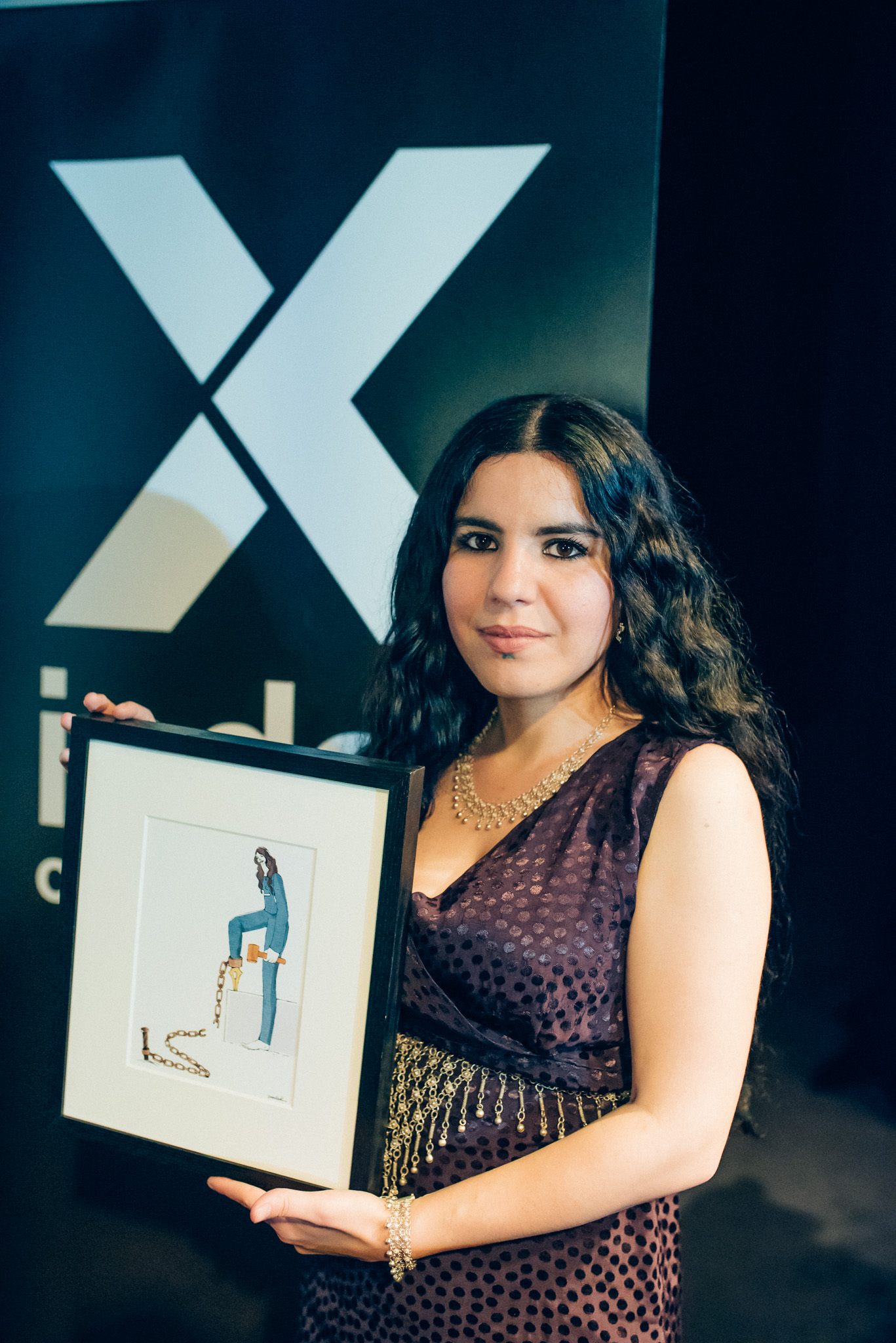[vc_row][vc_column][vc_single_image image=”112380″ img_size=”large”][/vc_column][/vc_row][vc_row][vc_column][vc_column_text]Hip-hop, satirical YouTube videos, a youth arts festival and rap are some of the ways in which art is being used today to protest against restrictions on freedom of expression.
Four individuals and organisations have been shortlisted in the Arts category for Index on Censorship’s 2020 Freedom of Expression Awards, which will be held at the May Fair Hotel in London on 30 April. The Arts is one of the four categories that will be recognised at the awards, alongside Campaigning, Digital Activism and Journalism.
Cameroonian rapper and pro-democracy activist Gaston Serval Abe, known as Général Valsero, has been using hip-hop to criticise government corruption in the country and to call for more transparency, and encourage civil engagement.
His music has seen him gain international recognition but he was banned from performing and radio stations rarely play his material. Despite being arrested and detained in 2019, Valsero remains courageous in his mission for justice and equality. Valsero was released last October after Cameroonian President Paul Biya ordered the discontinuance of proceedings against him and other political opponents.
Until its dissolution in April 2019, Casablanca-based NGO Racines worked to promote Moroccan culture and protect free speech, addressing taboo subjects such as politics, religion and sex.
The organisation, co-founded in 2010 by Dounia Benslimane and Aadel Essaadani, was forced to close after its offices were used to host an episode of the satirical YouTube series 1 Dîner 2 Cons (One Dinner, Two Fools). Racines itself had not organised the filming of the show nor had it posted the resultant clip, which included criticism of Morocco’s King Mohammed VI; it was viewed more than half a million times.
The Casablanca civil court ordered the closure of the NGO in December 2019 expressing “political views were far removed from the purposes for which the association was created”.
The organisation took the case to the Supreme Court but, in April 2019, the appeal was rejected and the dissolution of the organisation confirmed.
Rap Against Dictatorship is a Thai rap group which has produced anti-military rap songs criticising the Thai government.
The group released their hit song Prathet Ku Mee (What My Country’s Got) on 14 October 2018 “to mark the 45th anniversary of the 1973 popular uprising against a coup-installed prime minister in which 77 people died”, according to the Bangkok Post.
The song’s lyrics confront corruption, nepotism, the lack of accountability and transparency, poor healthcare, suppression of freedom of speech and the privileges afforded to the rich while the poor suffer.
The song went viral, eliciting a response from Prime Minister Prayut Chan-o-cha who argued “Is life really that hard? Is it that oppressive? Am I so dictatorial?”
Yulia Tsvetkova is a Russian artist and activist promoting women’s well-being and LGBTQ awareness. Her work has brought about positive change in discussions towards body positivity and gender stereotypes in Russia. However, this acclaim has made her a target.
In 2018 she began a campaign promoting body positivity which resulted in her being named a suspect in a criminal pornography distribution case. Tsvetkova, currently under house arrest, could face up to six years in prison if convicted.
In March 2019, her youth arts festival was cancelled after officials accused Tsvetkova of illegally trying to hold a gay pride event under the guise of a youth theatre festival.
In 2019, the winner of the Arts award was Kurdish painter and journalist Zehra Doğan.
Doğan had been arrested after painting the destruction in the town of Nusaybin in Turkey’s Kurdish region and sharing it on social media. She did this after realising that reports from the region were being ignored by mainstream media,
Speaking at her trial, a judge told Doğan about one of her works of art that “This picture has crossed the line between art and criticism.”
While in prison Doğan was denied access to materials for her work but made dyes made from crushed fruit and herbs, even blood, and used newspapers and milk cartons as canvases.
During her imprisonment she refused to be silenced and continued to produce journalism and art. She collected and wrote stories about female political prisoners, reported on human rights abuses in prison.
Doğan was released on 24 February 2019.
Accepting the word at the 2019 Freedom of Expression Awards after her release, Doğan said, “The limits of art, which the artistic world has not been able to agree upon for centuries, have apparently been figured out by the decision of a Turkish court.”
“It is not only art that has had boundaries drawn around it in Turkey: the things that can be said between friends, the topics you can write about, and the concepts you can debate at school with your students have all been limited by the authorities.”
The winner of the 2020 Arts award will be chosen by a panel of judges which includes artist Molly Crabapple, award-winning Guardian journalist Amelia Gentleman and Cindy Gallop, founder of social sex video platform MakeLoveNotPorn.[/vc_column_text][/vc_column][/vc_row]






